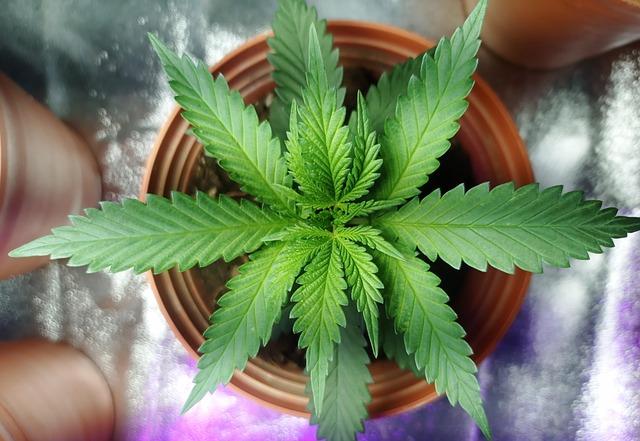Strengthening the Legal Framework for THC in Hemp: A Unified Call for Reform
Coalition Efforts to Safeguard THC Legality in Hemp-Derived Products
An expanding alliance of advocates from various sectors is rallying to defend the legal status of THC in hemp-based products. They argue that imposing tighter restrictions on THC levels threatens to diminish the hemp industry’s economic viability and restrict consumer access to valuable products. These proponents caution that more stringent rules could place undue burdens on cultivators, processors, and retailers who have heavily invested in this rapidly growing market.
Their campaign centers on several critical objectives aimed at preserving a fair and effective regulatory environment:
- Guaranteeing consumer safety and product transparency without eliminating permissible low THC content
- Shielding farmers and small enterprises from excessive regulatory costs
- Encouraging continued scientific research into hemp’s therapeutic and industrial applications
- Avoiding conflicting policies that could hinder innovation and market expansion
| Group | Main Concern | Recommended Action |
|---|---|---|
| Growers | Crop sustainability | Maintain THC thresholds to prevent crop loss |
| Producers | Legal clarity | Implement uniform, transparent regulations |
| End Users | Product availability and safety | Enhanced labeling and consumer education |
| Scientists | Research advancement | Increased funding for clinical trials |
Decoding the Complex Legal Environment Surrounding Hemp and THC
Although the 2018 Farm Bill federally legalized hemp cultivation, the journey toward comprehensive hemp freedom remains fraught with legal hurdles, largely due to THC’s regulatory status. While hemp products are permitted, the federally mandated THC cap of 0.3% often restricts product innovation and market growth. Critics argue this limit is arbitrary and hampers the industry’s potential, especially as state laws vary widely. For instance, states like Florida and Ohio have experienced shifting policies that complicate hemp farming, processing, and retail operations, forcing stakeholders to navigate a confusing mosaic of regulations.
The enforcement of hemp laws is inconsistent, with overlapping authority between federal bodies such as the DEA and FDA adding to the confusion. Advocates are calling for clearer, harmonized rules that protect consumers, stimulate economic development, and preserve hemp’s diverse benefits. The table below outlines the principal legal obstacles currently impeding hemp freedom:
| Issue | Effect | Advocate Recommendation |
|---|---|---|
| THC Concentration Limits | Limits product effectiveness and market reach | Raise or eliminate THC restrictions |
| Regulatory Uncertainty | Creates compliance challenges for cultivators | Establish consistent federal guidelines |
| FDA Approval Delays | Slows product innovation and market entry | Streamline review processes |
| Interstate Legal Discrepancies | Obstructs cross-border commerce | Align state and federal laws |
- Ambiguous labeling and testing standards erode consumer trust.
- Financial service limitations restrict banking access for hemp enterprises.
- Misaligned federal and state policies create legal uncertainties.
Health Advantages and Economic Contributions Bolster THC Legalization Advocacy
Proponents highlight that legal access to THC-containing hemp products is vital not only for health benefits but also as a significant economic engine. Patients report relief from ailments such as chronic pain, PTSD, and anxiety, demonstrating the therapeutic value of responsibly used THC. Advocacy groups stress the importance of affordable, high-quality hemp derivatives and point to ongoing studies that continue to uncover new medicinal potentials.
Economically, the hemp sector has emerged as a dynamic industry, generating billions in revenue and creating tens of thousands of jobs nationwide. Recent data from 2023 illustrates this growth:
| Indicator | 2023 Data |
|---|---|
| Annual Industry Revenue | $8.5 Billion |
| Employment Opportunities | Over 42,000 jobs |
| New Market Entrants | Approximately 1,200 businesses |
Advocates emphasize that preserving legal protections for THC is essential to sustain this momentum, warning that regulatory rollbacks could jeopardize both patient health and economic progress in communities nationwide.
- Public Health: Broader access to natural therapeutic options.
- Economic Growth: Support for startups and small enterprises.
- Tax Benefits: Increased revenue for public services and infrastructure.
Strategic Policy Proposals to Enhance Consumer Access and Industry Stability
To foster both consumer protection and sustainable industry growth, policymakers must enact clear, consistent regulations that uphold the legality of hemp products containing THC within the federally accepted 0.3% limit. This includes instituting rigorous testing standards to ensure product safety and potency, while clearly differentiating hemp from marijuana. Advocates recommend comprehensive labeling protocols that empower consumers with transparent information, reducing confusion and legal risks.
Recommended policy initiatives include:
- Legal safeguards to maintain permissible THC levels in hemp products.
- Uniform quality assurance standards nationwide to prevent regulatory fragmentation.
- Increased funding for research exploring hemp’s medicinal and economic potential.
- Public education campaigns to clarify hemp’s distinction from cannabis and reduce stigma.
| Policy Area | Expected Benefit | Key Stakeholders |
|---|---|---|
| Consistent THC Regulations | Legal certainty for producers | Farmers, Manufacturers |
| Quality and Safety Protocols | Enhanced consumer trust | Consumers, Retailers |
| Research Investment | Innovation and economic expansion | Industry, Researchers |
| Educational Outreach | Reduced stigma and informed public | General Public, Advocacy Groups |
Conclusion: The Ongoing Quest for Hemp and THC Legal Clarity
As discussions around hemp and THC regulations continue to evolve, advocates remain resolute in their mission to protect the legal status of THC within hemp products. With growing public endorsement and active legislative engagement, the movement for hemp freedom is gaining momentum. Stakeholders across the spectrum are closely watching policy developments that will shape the future of cannabis regulation, with significant economic and social consequences at stake. The message is unequivocal: preserving legal access to THC is essential for the health of consumers and the vitality of the hemp industry.




